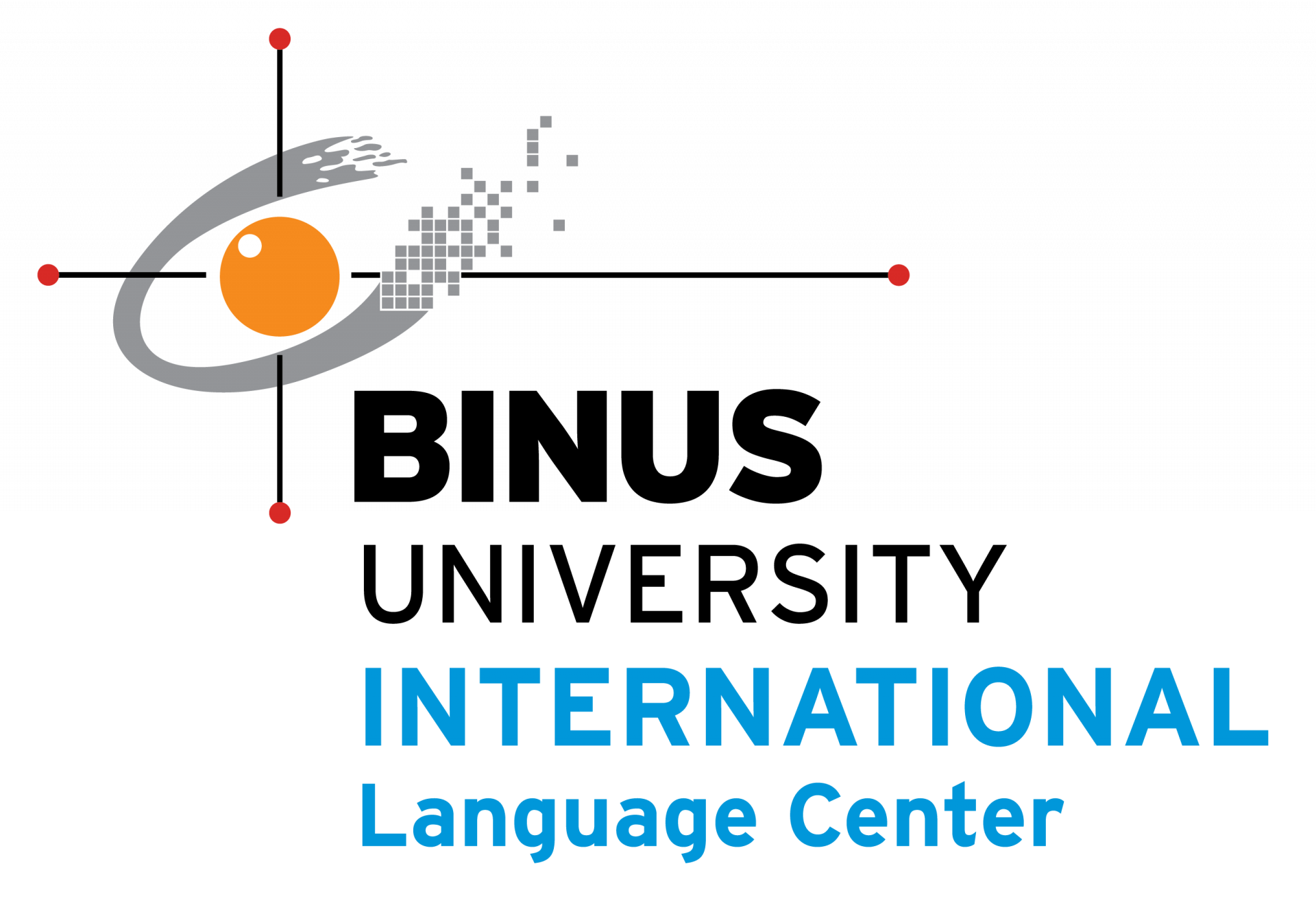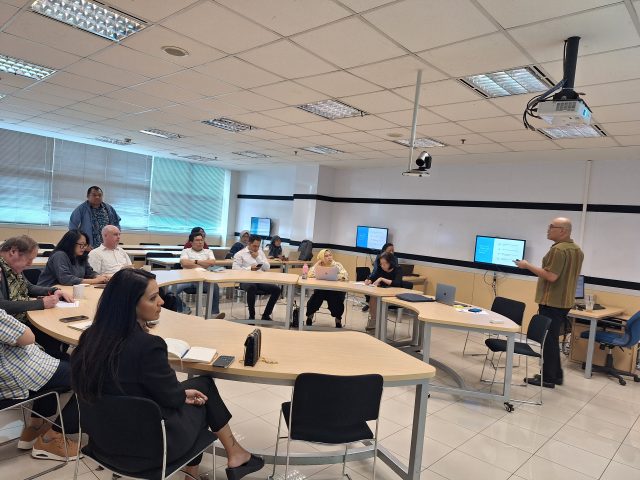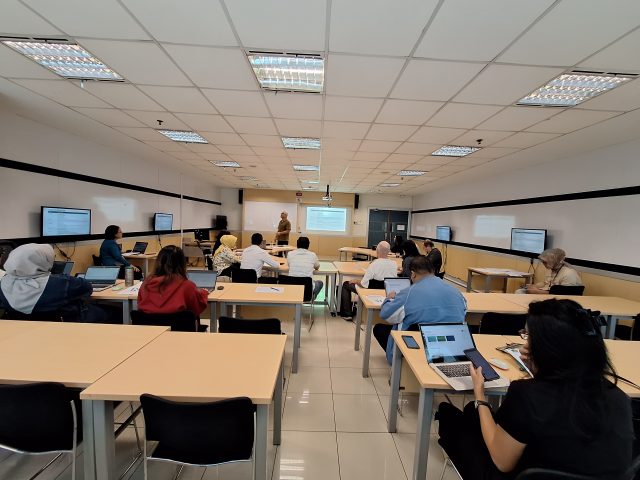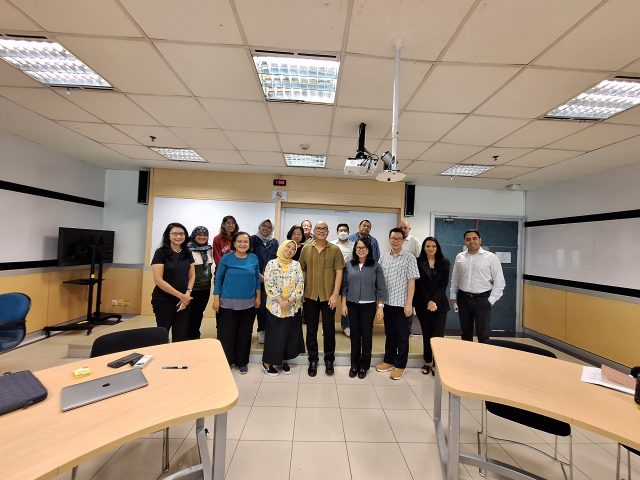Reflective Writing Workshop: Enhancing Student Journals
On Friday, February 2, 2024, the Language Center and CIDER hosted a workshop on reflective writing for Project Hatchery and Academic English lecturers. The workshop was held in Room 311 at BINUS@Senayan and was delivered by Dr. Franklin G. Talaue, the manager of the Language Center.
The workshop aimed to equip the lecturers with the knowledge and skills to guide their students in reflective writing assignments. Reflective writing is a type of writing that involves thinking critically about one’s own experiences, actions, feelings, and learning outcomes. It helps students to develop self-awareness, analytical skills, and metacognitive abilities. Reflective writing can also enhance students’ motivation, engagement, and learning retention.
In this workshop, Frank introduced the participants to Gibbs’ reflective writing model, which consists of six stages: description, feelings, evaluation, analysis, conclusion, and action plan. He explained the purpose and characteristics of each stage and provided examples of how to write them. He also shared some tips and strategies on how to facilitate students’ reflective writing process and how to provide effective feedback. The lecturers discussed how to apply this model to various scenarios and topics. During their conversation, they covered various topics, including challenges and grading rubrics.
The workshop was interactive and engaging. The workshop ended with a Q&A session where the participants asked questions and shared their insights on reflective writing. The participants of the workshop were very pleased with the content and delivery of the workshop. They expressed their appreciation and satisfaction and also mentioned that they had learned a lot from the workshop. They further added that they would apply the knowledge gained from the workshop to their teaching practices.
The workshop was a collaboration between the Language Center and CIDER (Center for Innovation in Design and Engineering for Research), which supports Project Hatchery. This program encourages students to create innovative solutions for real-world problems. The workshop was part of the Language Center’s continuous efforts to provide professional development opportunities for its lecturers and enhance its programs’ quality. We hope that this workshop will contribute to the improvement of student learning outcomes and lecturer professional development.



